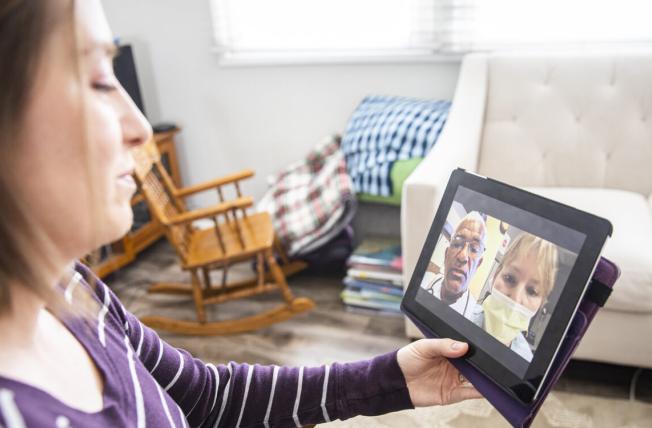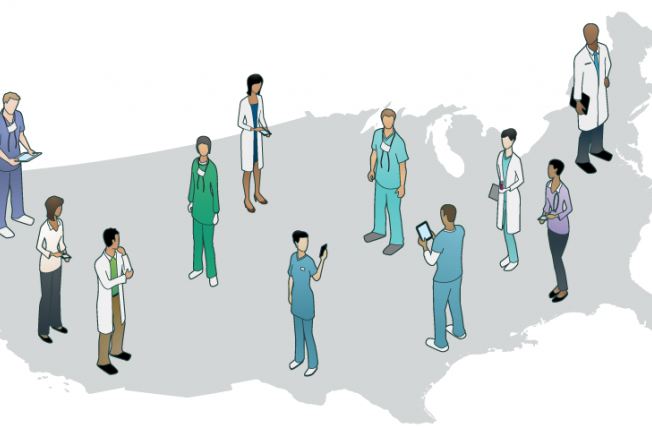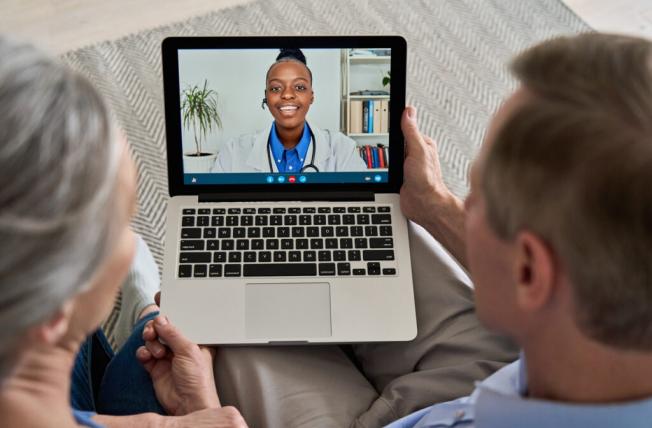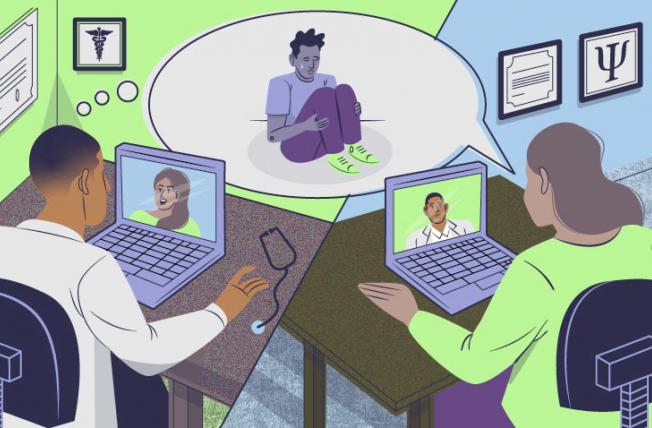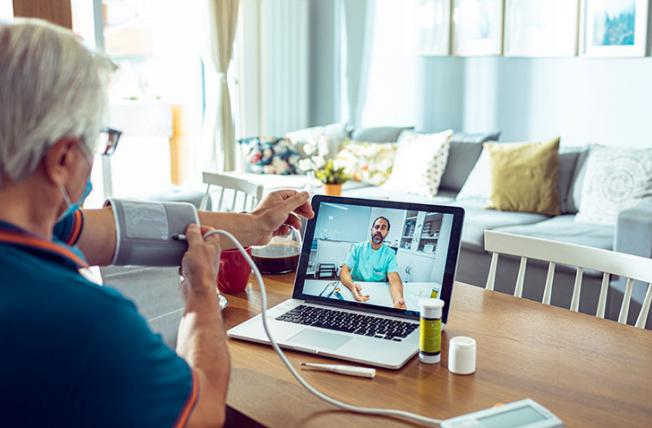

Telehealth Research and Policy
Research in telehealth at IHPI uses novel approaches to improve healthcare access, enhance the patient experience, and reduce costs. Developing a strong evidence base of successful and innovative telehealth solutions that can lead to scalable and sustainable telehealth programs has become increasingly important for effective healthcare delivery.
2024 IHPI Timely Topics in Telehealth/e-Health Research Seed Funding
Congratulations to the two funded project teams
- “Target Telestroke: An Assessment of Treatment Times and Geographic Variation in Use of Telestroke Care within the Paul Coverdell Michigan Stroke-Registry”
- PI: Brian Stamm, M.D.
- “Understanding Barriers and Facilitator of Remote Patient Monitoring with a Health Equity Lens”
Funding Opportunity Description:
The basics: What is telehealth?
The range and use of telehealth services to remotely diagnose, manage, or treat disease have expanded over the past decades for a wide variety of populations. Telehealth includes the use of video conferencing software, telephone, patient portals, and mobile health applications to deliver healthcare. The terms telehealth, telemedicine, virtual care, digital health, and eHealth are used interchangeably.

Featured
News
Telehealth appointments in the weeks before an operation meet with resistance from members of multiple surgical specialties except urology, U-M study finds
Meet Our
Experts
The Telehealth Research Network convenes telehealth researchers at U-M and promotes collaborations through research meetings and networking events.
If you are interested in joining our multi-institutional community of clinicians, scholars, healthcare administrators and policymakers who have an interest in telehealth research, please subscribe to the IHPI Telehealth Research Network listserv.
The Telehealth Research Snapshots report provides policymakers, journalists, healthcare administrators, and others with research insights on the population-level impact of telehealth on healthcare access, costs, quality, and experience. This databook contains published and unpublished research conducted by members of the Institute. The July 2021 edition represents the debut of the Telehealth Research Incubator. For questions, email Emma Steppe ([email protected]).

Supported by the Michigan Health Endowment Fund and the Ethel & James Flinn Foundation, an IHPI team conducted a wide-ranging study on the use of telehealth technology in Michigan and policy recommendations to increase access to care. The resulting report is a comprehensive collection of data around telehealth usage in relation to demographic information, insurance coverage, geography, broadband access, and also reviews the impact of telehealth on behavioral health care.
Chad Ellimoottil, M.D., M.S., associate professor of urology, and medical director of Virtual Care, University of Michigan Medical Group, leads the Telehealth Research Incubator lab. The lab focuses on using Medicare claims to assess the population-level effects of telehealth on cost, quality, access, and equity. For questions, email Chad Ellimoottil.
U-M researchers have been rigorously evaluating telehealth policies and telehealth programs to determine population-level impact on healthcare costs, quality, access and patient experience. Learn why sustainable telehealth programs have become increasingly important for effective healthcare delivery.
The IHPI Telehealth Team
Laurie Buis, Ph.D., M.S.I.
Faculty Lead
Emma Steppe, M.P.H.
Project Manager


